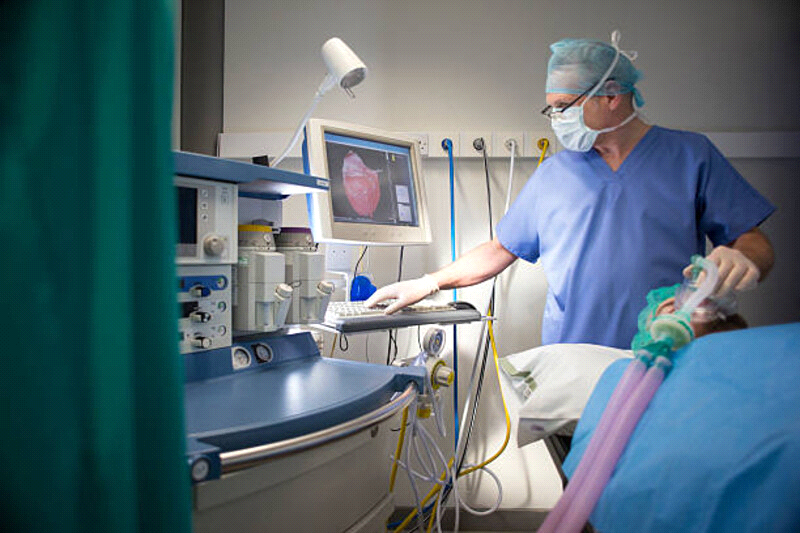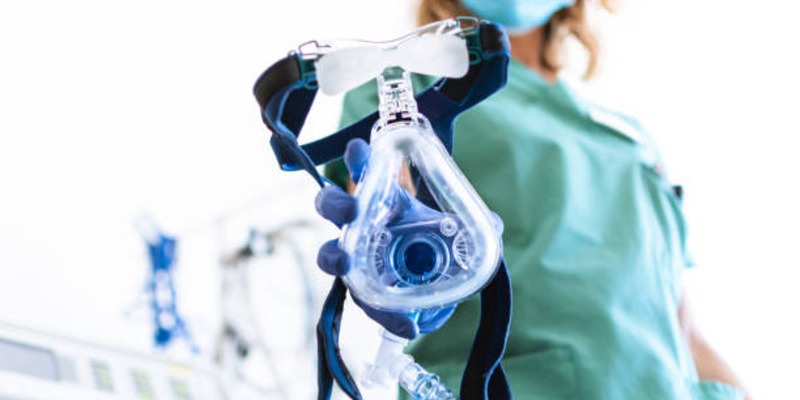Everything You Need to Know About Anesthesia: A Detailed Exploration
Jan 24, 2024 By Madison Evans
Anesthesia plays a vital role in modern medicine, facilitating pain-free medical procedures and surgeries. Whether you are a healthcare professional, medical student, or an individual seeking to expand your knowledge, this comprehensive guide offers in-depth insights into the world of anesthesia, covering everything you need to know.
Overview of Anesthesia
Anesthesia is a crucial medical specialty that encompasses the administration of medications to induce unconsciousness, alleviate pain, and ensure patient comfort during surgical procedures. It serves as a critical component of contemporary medicine, facilitating the safe and effective execution of complex surgeries and interventions.
Types of Anesthesia

There are various types of anesthesia, each tailored to the specific needs of the patient and the procedure being performed.
General Anesthesia:
General anesthesia is the most common type of anesthesia used for major surgical procedures. It involves the administration of intravenous medications and inhaled gases to induce a state of unconsciousness. This ensures that the patient is completely unaware and feels no pain during the procedure.
Local Anesthesia:
Local anesthesia is typically used for minor procedures and involves the injection or topical application of medications to numb a specific area of the body. This allows the patient to remain awake and alert while the procedure is performed, without experiencing any pain.
Regional Anesthesia:
Regional anesthesia involves the injection of anesthetic medication near a cluster of nerves to numb a larger region of the body. This can include techniques such as spinal or epidural anesthesia, which are commonly used for procedures involving the lower abdomen, pelvis, and lower extremities.
How Anesthesia Works?
Nervous System Effects:
Anesthetic medications target specific receptors in the nervous system, inhibiting the transmission of pain signals from the surgical site to the brain. This prevents the patient from experiencing pain during the procedure.
Blocking Pain Signals:
Anesthetic medications also block the sensation of pain by interfering with the normal functioning of nerve cells. This ensures that even if pain signals are still generated at the surgical site, they are not perceived by the brain.
Inducing Unconsciousness:
In the case of general anesthesia, the medications used cause a reversible loss of consciousness, rendering the patient completely unaware and unresponsive during the procedure.
What to Expect?
If you're scheduled to undergo a procedure requiring anesthesia, it's important to know what to expect.
Preoperative Evaluation:
Before your procedure, you will undergo a thorough preoperative evaluation. This may involve a medical history review, physical examination, and laboratory tests to ensure that you are in optimal health for the procedure.
Administration of Anesthesia:
On the day of the procedure, an anesthesiologist or nurse anesthetist will administer the appropriate anesthesia based on your specific needs. They will carefully monitor your vital signs throughout the procedure to ensure your safety and well-being.
Monitoring During the Procedure:
During the procedure, you will be continuously monitored to assess your vital signs, including heart rate, blood pressure, oxygen levels, and breathing. This allows the anesthesia team to adjust the medications as needed to maintain your comfort and safety.
Risks and Complications

While anesthesia is generally safe, there are potential risks and complications that can occur.
Allergic Reactions:
In rare cases, patients may experience allergic reactions to certain anesthesia medications. It is important to inform your healthcare provider about any known allergies or adverse reactions to medications beforehand.
Nausea and Vomiting:
Nausea and vomiting are common side effects of anesthesia, particularly after general anesthesia. Medications can be given to help alleviate these symptoms if they occur.
Breathing Difficulties:
Anesthesia can temporarily affect the function of the respiratory system, leading to breathing difficulties. This is closely monitored during and after the procedure to ensure prompts intervention if necessary.
Rare Complications:
While rare, there are potential complications associated with anesthesia, such as;
- Nerve damage.
- Infection.
- Adverse Reactions to Specific Techniques.
These risks are minimized through careful patient evaluation and adherence to best practices.
Recovery After Anesthesia
After your procedure, you will be taken to the post-anesthesia care unit (PACU) where you will be closely monitored as you recover from the effects of anesthesia.
Side Effects and Their Management:
Common side effects after anesthesia include drowsiness, sore throat, muscle aches, and nausea. The healthcare team will provide appropriate medications and interventions to manage these side effects and ensure your comfort.
Normal Recovery Timeline:
The recovery timeline after anesthesia varies depending on the individual and the type of anesthesia used. Most patients experience a gradual return to normal functioning within a few hours to a few days.
Recent Advancements in Anesthesia Technology
Advancements in technology continue to enhance the practice of anesthesia, improving patient safety and outcomes.
Targeted Drug Delivery Systems:
Targeted drug delivery systems allow for more precise administration of anesthetic medications, reducing the risk of over-sedation and minimizing side effects.
Enhanced Monitoring Techniques:
New monitoring technologies enable real-time assessment of vital signs and anesthesia depth, providing anesthesiologists with valuable information to optimize patient care during procedures.
Conclusion
Anesthesia is an essential component of modern medicine, ensuring patient comfort and safety during surgical procedures. By understanding the different types of anesthesia, how it works, what to expect, and the potential risks and complications, both healthcare professionals and the general public can appreciate the critical role anesthesia plays in the field of medicine. As technology continues to advance, the future of anesthesia holds even greater promise for improved patient outcomes and enhanced surgical experiences.








